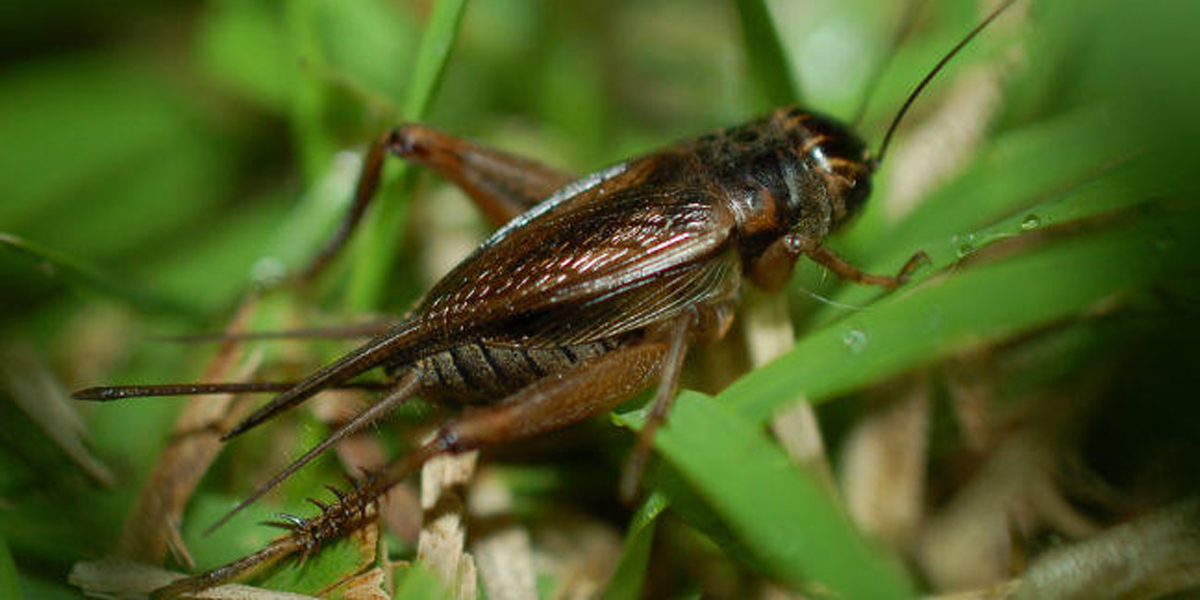
Pacific field cricket; Credit: Jessie Tanner
We all learned in high school biology, if not before, that evolution is about making more offspring that survive to make more offspring, and so on down the line. If that’s the case, can there be adaptive value in spending time and energy engaging in sexual behavior targeted at something other than potentially fertile mates?
Yes, argue Ecology, Evolution and Behavior postdoctoral fellow Jon Richardson and Professor Marlene Zuk in a paper published recently in the Proceedings of the Royal Society B.
“Same-sex sexual behavior is widespread in animals but is often treated as an anomaly that requires special explanation,” says Richardson. “There are two main problems with this. First, animals often misdirect behavior. Second, framing misdirected behaviors as ‘mistakes’ risks misinterpreting how animals make flexible decisions about mating behavior.”
To explore other interpretations, the researchers enlisted the help of Pacific field crickets, which have a specific, easy-to-distinguish chirp that indicates courtship. They introduced male crickets to one of a variety of prospective mates – mature females, mature males, immature males and females, and a plastic cricket. They found that, although mature females were the most likely to get a chirp, at least some male crickets exhibited courtship behavior toward the other options.
Richardson and Zuk concluded that rather than being a mistake, directing sexual behavior toward individuals or objects that can’t result in producing offspring is a matter of being appropriately choosy. If the cost of chirping is high (if it takes a lot of energy or attracts predators, for example), it would make evolutionary sense to have a “narrow mating filter” – only chirp when a receptive female is around. But if the cost is low, not being too fussy – having a “narrow filter” – reduces the likelihood a cricket will miss a legitimate mating opportunity by accidentally screening it out.
“There are times that being flexible in your behavior is beneficial,” Richardson says. “That’s what we wanted to show here. This behavior is not an anomaly, and it’s unhelpful to think of it as a mistake.”
The research raises the fascinating question of whether filters differ for different species or sexes or shift depending on circumstances.
“We can now ask what might cause mating filters to change,” Richardson says. “In some contexts having a broad filter might be better, while in other contexts having a narrow filter might be better. For example, if courtship behavior is costly or risky then does that mean animals narrow their mating filters?”
Only time – and crickets – will tell.
— Mary Hoff